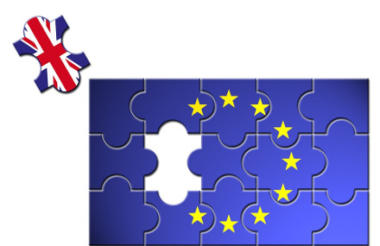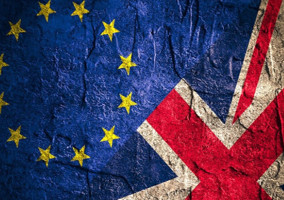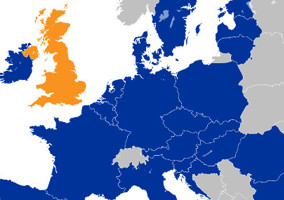Brexit has been a “shake to our psyche” and charities must think about doing things differently to help the country transition, the chief executive of NCVO has said.
Sir Stuart Etherington was speaking last night at an event about Brexit for charities organised by Russell-Cooke and Sayer Vincent. Also n the panel were Caron Bradshaw, chief executive of the Charity Finance Group, and Clare Pelham, chief executive of the Epilepsy Society.
Etherington said that following Brexit: “We need to think about different ways of doing things in the future, in the same way that we did in 1919 when NCVO was created.”
He said while there hasn’t been a war, there has been a “shaking of our certainties”.
“We are not the country that we were but we're not yet the country that we will be,” he said. “The role that civil society can play in mapping that transition, or engaging with that transition, is that we need to do things differently.”
He gave as examples of this social prescribing and looking at the issue of loneliness.
The other panellists agreed that there has been a fundamental shift that the sector must respond to.
Pelham said: “The kaleidoscope has changed.”
But she added that the sector has a “long history of doing our best for the people who need us most”.
Meanwhile Bradshaw warned that the sector is “going through a structural change” and that “we're not all going to survive”. However, she added that it was important to try to take control of the situation and “be the ones that are in the driving seat”.
‘Deeply divided country’
Etherington said that the Brexit debate had exposed deep divisions in society and that there is a key role for civil society in bringing people together.
“Civil society has to think through beyond Brexit,” he said. “About how it brings different elements together to create a much more cohesive society.”
He described the fallout from the referendum as “almost like a civil war”.
Charities should be “stepping up to the plate and enabling people who fundamentally disagree” to come together and “have a civil dialogue for the future,” he said.
Bradshaw said she agreed, adding that the sector “got a little bit tied up” in the technical issues and needs.
“We haven't necessarily thought about what this means to us longer term in our position with our communities,” she said.
‘We’re seen as complaining’
Pelham said that the sector looks as though it is complaining about Brexit, having not engaged much ahead of the referendum.
“We seem to have moved a little bit from complacency to complaining,” she said.
“I wish there was a bit more of a sense of us rolling up our sleeves and helping with this rather than sitting back and saying 'it's not going very well is it?' There is the touch of that tone of voice about some of our pronouncements.”
Etherington added that the sector had been disengaged during the debate and criticised the Charity Commission for publishing guidance that discouraged charities from speaking out.
He said the regulator “made a complete dogs breakfast of this” and highlighted that a “clear Brexiteer” was part of its board at the time.
The guidance was successfully challenged by NCVO and law firms, but “it was too late” as “it had done its damage”.
“In my view the regulator was completely operating incompetently during that period,” he said.
But he also agreed that the sector was part of the elite who “thought it would be ok on the night” and that the sector should have had better connections on the ground.
He said that it is right for individual charities to now speak up on behalf of their beneficiaries about the impact of different outcomes, but that umbrella organisations, which represent many different charities, should remain neutral.
Bradshaw said charities should not confuse speaking up on behalf of beneficiaries with reiterating their views to government.
“It should be speaking up for our beneficiaries, how they are impacted by this, not how they voted,” she said.
She also said it was ok to form different conclusions to those of communities.
“I am getting fed up of us beating ourselves up and saying 'we're operating in a bubble'. Yes we can be privileged. The problem comes not with being priviliedged, it comes from not recognising it.”
Social care wages
Pelham said consequences of Brexit were "not all bad".
Pay in the social care sector is a “disgrace”, she said. “If the consequence of Brexit is that we start to pay people a proper wage for a proper an important valued job, and we bring in productivity support, supporting people to do their best work, that would be a great outcome."
She added that she was uncomfortable with paying migrant workers low pay to leave their families and work in the UK.
Etherington and Bradshaw disagreed with the idea that immigration was the reason pay was low in the social care sector.
Bradshaw said: “I think the biggest thing that has suppressed wages is the contracting environment, so I totally disagree.”
Related articles












